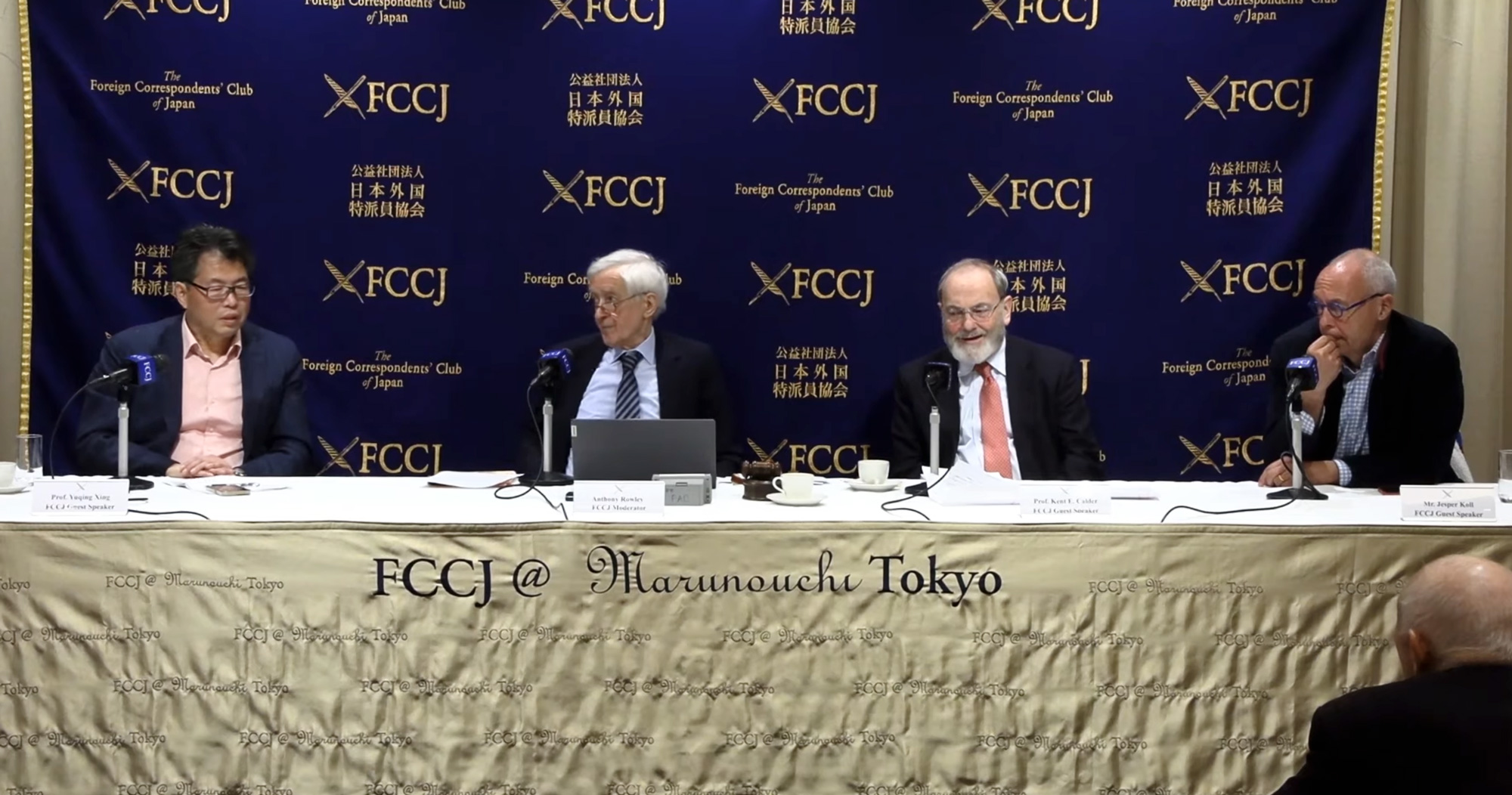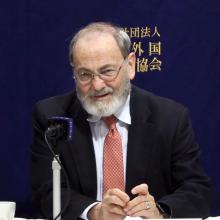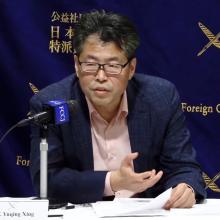Issue:
April 2025 | Deep Dive
Trump Mark II has sparked a new round of competition with China in the battle for global supremacy

Will president Donald Trump succeed in making America great again, to the point where the world stands in awe of U.S. industrial, technological and financial prowess, and dollar dominance continues well into the future? Or will Asia become a China-centric regional power that limits America’s global reach and influence?
These were among the timely questions posed at a recent FCCJ Deep Dive event about U.S.-Asia relations in an era of global turmoil, where experts echoed the current debate over the shifting balance of global economic power, as Trump releases a barrage of moves designed to ensure that America stays on top.

The case for America remaining dominant in Asia was made by Professor Kent Calder, director of the Edwin O. Reischauer Centre for East Asian Studies at Johns Hopkins University in Washington.
“I think we have to recognise that there's a very strong embedded dimension and underlying geopolitical and economic logic to U.S. relations with Asia,” Calder said. But he acknowledged that “some shifts on the continent of Eurasia, could affect that situation”, citing growing infrastructure connectivity between China and Southeast Asia as one factor that could bring about change.
“There are, to my mind, enduring dimensions that will strengthen the U.S.'s relations with Asia over the years,” Calder said. “When it comes to food supply, the fact that China's population is four times or more that of the United States creates a vulnerability [for China] while it becomes a strength of the U.S. as a major food exporter and innovator in in food related areas. In energy recently we've seen the U.S. emerging as a major energy exporter.”
Despite dramatic developments in artificial intelligence (AI) such as China’s unveiling of its DeepSeek technology and other technological innovations, it is questionable whether there can be “an equivalent to [California’s] Silicon Valley in China”, he added.
“And can a socialist system non or a non-market-oriented system produce the kind of results in terms of innovation that a market-oriented globally oriented system can? Unless and until China produces an effective framework for the protection of intellectual property, foreign investment into advanced technology there will remain limited.

Calder who recently published a book on Eurasian maritime politics, said the “seas around the Asian continent have been transformed”, and this too supports the case for the U.S. remaining a powerful player on the continent. He pointed to the rise of “huge commodity trade and huge energy trades”, both of which have left China vulnerable in certain ways.
“Until 1993, China was an energy exporter and has shifted, of course, to a massive energy importer with more than 10 million barrels a day, most of it over the seas, most of it from the Middle East,” he said. “Heavy dependence has emerged in the last generation between China and the rest of the world, conspicuously across the Indian Ocean that the United States still is geopolitically dominant in.
“That rising dependence, which has risen with China's economic growth, can be a force for stability. But it's also a source for vulnerability for China which as it grows economically, has become significantly more dependent on the broader world.”
The emergence of information flows beneath the seas is another factor. “Ninety-five percent of the Internet flows under the sea, for example, and the network of fibre communications across the world, including into China, is having a troubled geopolitical dimension increasingly. Those flows create an interdependence that at the same time places constraints and provides points of leverage.”
The United States, on the other hand, remains dominant in the blue waters of the Indian Ocean and thus in a more controlling position than China.
Does all this add up to a China-dominant East Asian political economy? “I don't believe so,” Calder said, but conceded that some of the vulnerabilities he listed did not apply to places such as Hong Kong, Singapore and others on the “periphery or penumbra” of mainland China, whose global prowess needs to be seen in this wider context.
Yuqing Xing, Professor of Economics at Tokyo’s National Graduate Institute for Policy Studies, defended China’s challenge, noting three fundamental differences between the U.S. and China will affect relations and “prevent them from maintaining mutually beneficial and stable relations”.

The two “have different political systems. China is a socialist country governed by the Chinese Communist Party”, Xing said. “The United States is a democratic country. The difference in the political system makes it very difficult and challenging for the two countries to build a trust when they engage economic, scientific and cultural exchanges.”
But China continues to outshine the U.S. as a defender of global free trade. Its role within Asian regional economic organizations from which the U.S. remains absent will increase its influence relative to that of the U.S., Xing said.
A third panellist, financial analyst and economist Jesper Koll, suggested that “with or without Trump,” it was unlikely that America would ever come back to be a champion of globalism”. The U.S. withdrawal from globalism reflects “tensions within the United States”, whether it is the gap between the rich and the poor, or political differences, that make it difficult to. agree on a global strategy.
Anthony Rowley is a columnist and contributor for the South China Morning Post.

